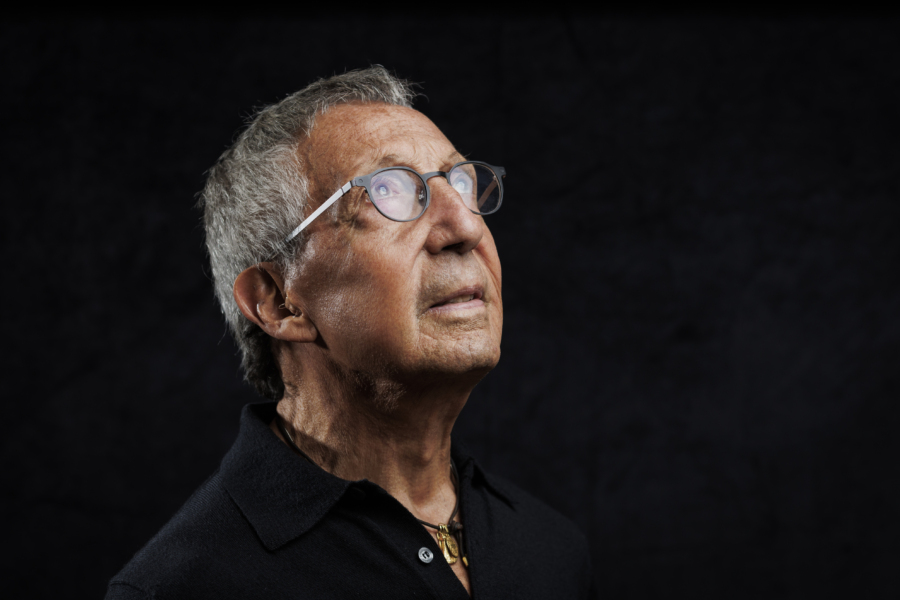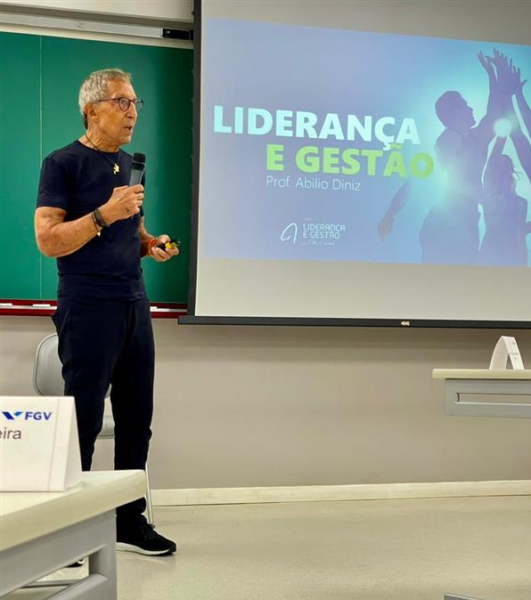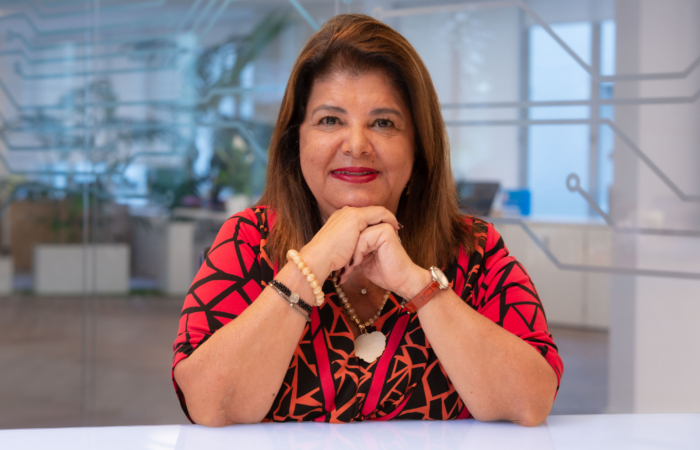
PROFILE
More than one of the businessmen who became a symbol of hope for the future even in a period of a closed economy and out-of-control inflation, Abilio Diniz, who died on Sunday, 18, at the age of 87, was a visionary and an example of confidence in the Brazil. With his long-term mentality, he transformed Grupo Pão de Açúcar into a retail giant, with innovations such as hypermarkets and self-service. The success of the family organization founded by his father, which expanded rapidly, demonstrated its ability to build and maintain trust among both consumers and investors, leaving a legacy infinitely greater than that linked to companies and their assets.
Abilio Diniz, an eternal enthusiast of the market and the country's future, has always been passionate about life and business. And he is the author of inspiring phrases like these, among the many that will be remembered:
"I love my life. I love what I do. When I die, I don’t want those people saying “Poor thing”… Put on the Gonzaguinha song… “To live is not to be ashamed of being happy. Sing and sing the joy of being an eternal learner” that I am”.
From periods of disorganized economy to the most recent, there was no “bad time”, as he used to say in his popular classes in the leadership and management course at Fundação Getúlio Vargas (FGV) or at CNN Brasil, where, in his last years, he changed the role of interviewee to that of interviewer.
And this characteristic has only kept him as one of the most listened to leaders in the country, in corporate and government circles, for decades, due to his resilience and ability to overcome obstacles. Without them, he would not have extended his career to companies such as Carrefour, BRF, nor achieved a fortune valued at around US$ 2 billion, the equivalent of R$ 10 billion.

Also watch to the video in which Abilio talks about the satisfaction of returning to FGV, where he was a student in the second Administration class, in the 1950s, to teach and share his trajectory in the 360° Leadership specialization course
"Being objective means knowing where you are and where you want to go, focusing on results.”
Abilio Diniz has always declared himself competitive – and not just in sports, an eternal source of inspiration also in his corporate activities. Still in the 1960s, already a successful businessman, he became a successful driver in Brazilian motorsport, driving a red Alfa Romeo. He shared his pains and achievements on social media, with an emphasis on promoting entrepreneurship. In the last video he posted before he was hospitalized and died due to respiratory failure as a result of pneumonitis, he was in a snowy landscape regretting not being able to ski, as he liked to do every January, due to knee problems.
“We choose what we want to be in life. Being big is a choice. Just believe."
Those who followed him closely tend to consider him more than just competitive: he was obsessive in everything he did. “I have always seen life as competition”, said the businessman in an interview in the 1990s, commenting that he had started competing in triathlon, a competition that involves swimming, cycling and running. Many Brazilians will remember seeing the businessman exercising in the streets, mainly at Praia da Enseada, in Guarujá. Abilio Diniz was a fervent defender of quality of life, physical and mental, and self-knowledge.
The optimism and confidence associated with sport also transferred to the country's potential and reinforced the entrepreneur's resilience in both corporate and personal life. Abilio Diniz was a businessman who, from a sweet shop founded in 1948 by his father, a Portuguese immigrant, in the Paraíso neighborhood, in São Paulo, created thousands of jobs and contributed to the development of the Brazilian economy. As a corporate leader, he encouraged sustainability and social inclusion practices. He founded the Península Institute, which invests in education and social development and, in the official area, was part of the National Monetary Council (CMN).
“Try to see things from the positive side. This may be enough to produce significant changes in your quality of life.”
In his personal life, resilience helped him overcome successive crises, such as family disputes, a traumatic kidnapping and the biggest of all: the death of one of his sons, João Paulo Diniz, victim of a heart attack at the age of 58. “Without my son, I will reinvent myself and move forward to help the country,” he said at the time. The businessman never bothered to publicly expose his pain, seeking support from his family and relationships.
This same resilience contributed to the fact that, at the end of the turbulent 1980s, Abilio was a decisive figure in saving Pão de Açúcar itself from serious financial problems, also motivated by fierce family disputes.
The leader, who has always been among the most heard voices in periods of adverse economic times, managed to revive the company and sell 25% of the business to the French group Casino, as a way of ensuring a capital injection. Later on, he would go from retail to industry, becoming an investor in BRF, in addition to continuing in commerce with a 10% stake in Carrefour, through PeninsulaThe, the holding company that takes care of the family business.
3 phrases to inspire
“Some dream of success, we wake up early and work hard to achieve it.”
“I want to be better today than I was yesterday and tomorrow, better than I am today.”
“Being creative means doing things differently, innovating and reinventing to create the future.”
And also so that, in inflationary times, Abilio could expand, acquiring companies, and maintain what he had worked hard to build over decades: his reputation. In a year in which he was even considered to be minister, marked by a price freeze, he was even indicted on allegations of withholding goods. Abilio made fun of the situation: “I went from (possible) minister to public enemy number 1” – and his record helped him avoid further damage to his image, preserving his legacy.
In these and other circumstances, the businessman made use of what he considers essential for a happy life – and good with all his audiences, detailed in one of his books, Caminhos e Escolhas, from 2004: physical activity, nutrition, control of stress, self-knowledge, love and spirituality and faith. In 2016, he would return with another best seller, Novos Caminhos, Novas Escolhas, in which he synthesizes these concerns into a central issue: reinventions of personal and professional life.
Reinventing himself was what Abilio Diniz always did and this is one of the lessons learned from his 87 years of full life that he leaves as a legacy.



